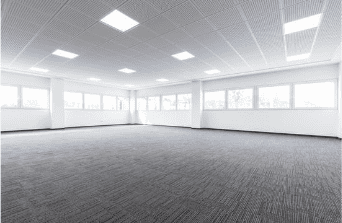Commercial space refers to real estate property that is used for business purposes and not for residential or recreational use. The space encompasses retail stores, offices, warehouses, industrial units, restaurants and multi-use, to name a few. Commercial buildings have the potential to be profitable through either reselling the space or by rental lease income. In this post, I will refer to the different types of commercial space.
Retail space is the area within a commercial building where items and services are sold. Retail space includes a variety of settings including anchor stores, storefronts and fashion centers. Anchor stores are the largest retail setting and attract other business to nearby tenants by providing visibility.
Offices are designed to support businesses and provide space for administration, clerical and management duties. Offices are usually classified into 2 categories: urban and suburban. Urban office buildings include city skyscrapers and suburban office buildings are smaller and are sometimes massed together in office parks.
Warehouses store goods until they are ready to be distributed to retailers or customers. Their services can improve the efficiency of your business, offering a centralized location for all of your products. Warehouses can receive orders and ship your products directly to your customer or to a distributor.
Industrial commercial space is designed to house warehouses and manufacturing plants. Their services range from the production and storage of goods to the distribution of goods. Industrial buildings usually accommodate operations for a number of tenants.
Restaurants are another type of commercial space. They are designed to provide dining and services to individuals. These commercial buildings fall under the category of hospitality which also includes hotels, which are designed to accommodate individuals.
A multi-use commercial space has a number of tenants, which could be offices, restaurants and retailers. “It can also include residential rentals, and would be considered commercial as long as 51% of the tenants were commercial tenants and not residential,” says Indeed Career Guide. “Multi-use buildings can be a good investment for developers as they don’t rely on any one specific type of business, which can afford some security.”
Commercial space includes a range of businesses designed to make a profit through either reselling the space or leasing it to tenants. These commercial spaces play a vital role in driving economic growth and consumer convenience.
Commercial space encompasses a diverse range of property types that serve various business needs – from retail and office environments to industrial facilities and hospitality venues. Understanding these different categories helps investors, business owners, and developers make informed decisions that align with their goals. Whether leased, sold or developed for mixed use, commercial properties represent significant opportunities for income and long-term value. As communities grow and evolve, so does the demand for commercial space, making it a dynamic and essential component of the real estate market.

